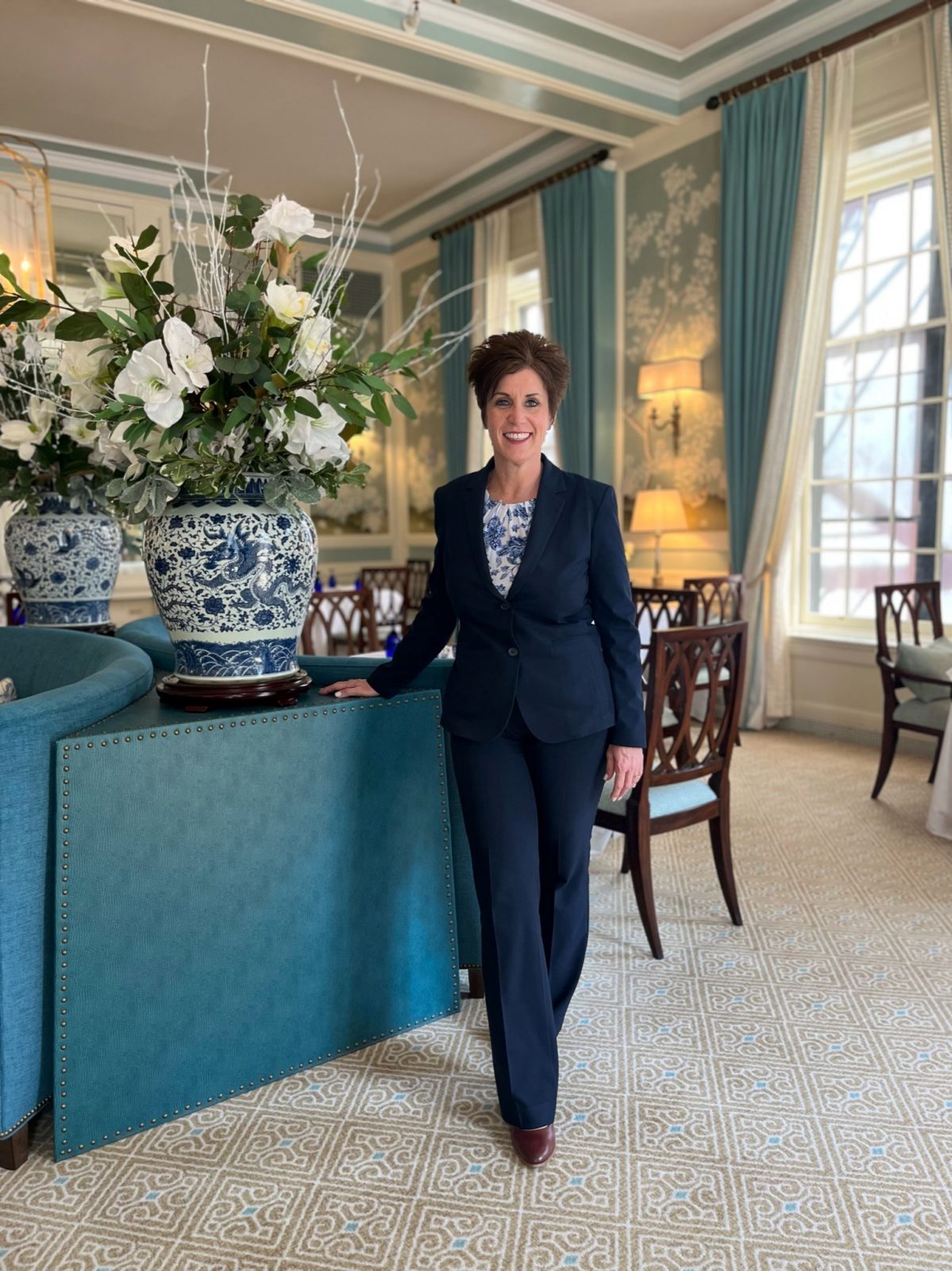Not many people can say they call a place with over a thousand rooms “home.” But working in the hotel industry gave Carol Bliss, adjunct professor at Boston University’s School of Hospitality Administration, the unique opportunity.
“You got to exude your actual personality, like welcoming somebody into your house and your house being 1,200 rooms,” she said.
Now, Bliss is the general manager and chief operating officer of the Chilton Club, a distinguished, women-dominated private social club in Boston where she oversees 860 members. As general manager of the club, a position she’s held since 2018, Bliss has to “understand hospitality and business, as well as marketing and communications and everything in between.”

Bliss was the first woman in New England to earn the title Certified Chief Executive. She received a 2023 Excellence in Club Management Award: the Mel Rex Award, which recognizes achievement of a manager of a city, athletic or specialty club.
Unlike many clubs, which are centered around sports such as golf or tennis, the Chilton Club fosters a space for members who are intellectually curious. Members can take foreign language classes, play bridge or mah-jong or attend a lecture about AI.
Bliss said the club also provides a place for those who want to foster intergenerational friendships and relationships — notably among women.
The Chilton Club — modeled after the Colony Club, a women-only club in New York City — was founded in 1910, a time when most American clubs prevented women from becoming members. The club opened its doors to men in 1988 and today remains predominantly female.
Despite Bliss’s high-ranking position within the Chilton Club, she’s encountered challenges that come with working in a male-dominated industry.
“New England is very old-world. And so in New England, we have very few female general managers,” Bliss said. “We have more now than we ever did before. But it’s still a very hard thing. And sometimes if these private clubs are run by men … they have a hard time taking women seriously.”
Before working her way up to the Chilton Club and her accolades, Bliss began her career in hospitality by working in restaurants and hotels.
“I loved restaurants because it was the same job every day, but you didn’t know what to expect every day,” she said.
Bliss recalled an experience from when she worked at a prior club, where a regular customer consistently complained about the quality of the service. After Bliss casually greeted the customer one day, he stopped complaining, and he even chatted with her the next time they met.
“I realized he wanted to be seen,” Bliss said. “He wanted attention of some kind from somebody. It just helped me to see every member has something going on in their life outside of our world that you don’t know anything about.”
Bliss’s recognition of each of her club members’ humanity reflects the hospitality of the industry she works in.
“Carol is [one of] the most hardworking, caring and genuine people that I ever worked with,” said Kim Deans, the controller at Vesper Country Club in Tyngsborough and Bliss’s previous colleague at Brae Burn Country Club in West Newton. “She is always earning new certificates and furthering her education, and what’s best about that is she shares her knowledge with her colleagues and she helps them grow.”
Jason Banusiewicz, the Executive Chef at the University Club of Boston, worked with Bliss at the Harvard Club of Boston and said that Bliss brought a positive attitude and personality to stressful situations.
“When I got [to the Harvard Club] I wanted to change the menu,” Banusiewicz said. “Carol [was] super supportive, and she helped with the change, letting me showcase my skill but also steer it in the right direction.”
Teaching private club management as an adjunct professor in SHA, a position she began in September, Bliss is able to share her passion for working in private clubs with students interested in the hospitality business. During the Fall 2023 semester, Bliss took her students on tours of three local clubs, including the Quinn House, the Harvard Club and the Chilton Club.
Bliss said she wants her students to know that working at a private club can open unexpected doors.
“Every day you work at [a club], you are at a job interview and you don’t even know it, because the members have connections to every kind of business you could possibly dream of,” Bliss said.
Bliss knows private clubs are not as prominent as the hotel chains commonly associated with the hospitality industry. She said she hopes to demonstrate to her students the rewarding educational opportunities and career possibilities private clubs offer, like the opportunity to explore clubs that align with varying interests and the ability to work with others to provide hospitality and service.
In Bliss’s line of work, every day is different. But ultimately, her enjoyment for her job comes down to “the gift of hospitality, of giving back, of unexpected kindness and gracious service that people enjoy.”




















































































































